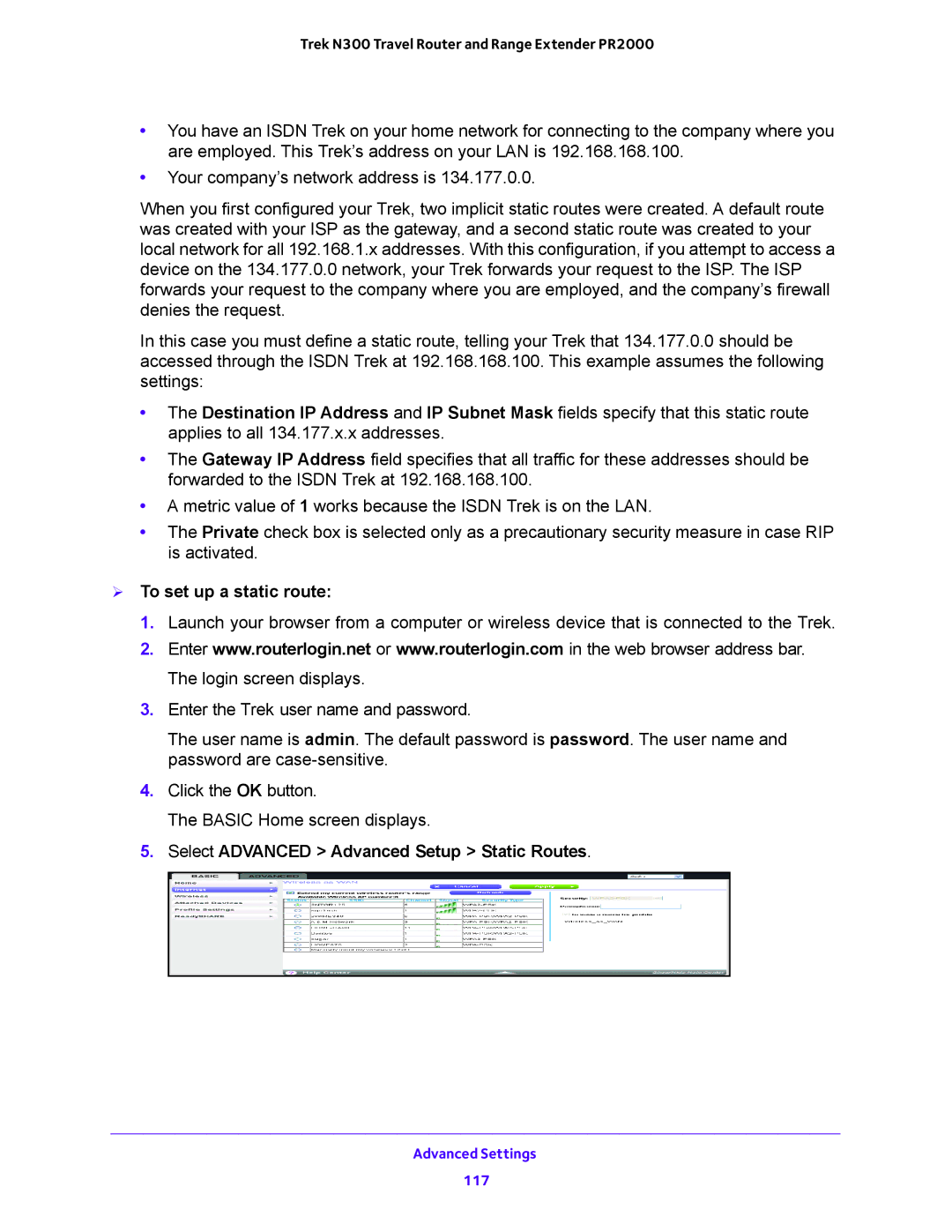
Trek N300 Travel Router and Range Extender PR2000
•You have an ISDN Trek on your home network for connecting to the company where you are employed. This Trek’s address on your LAN is 192.168.168.100.
•Your company’s network address is 134.177.0.0.
When you first configured your Trek, two implicit static routes were created. A default route was created with your ISP as the gateway, and a second static route was created to your local network for all 192.168.1.x addresses. With this configuration, if you attempt to access a device on the 134.177.0.0 network, your Trek forwards your request to the ISP. The ISP forwards your request to the company where you are employed, and the company’s firewall denies the request.
In this case you must define a static route, telling your Trek that 134.177.0.0 should be accessed through the ISDN Trek at 192.168.168.100. This example assumes the following settings:
•The Destination IP Address and IP Subnet Mask fields specify that this static route applies to all 134.177.x.x addresses.
•The Gateway IP Address field specifies that all traffic for these addresses should be forwarded to the ISDN Trek at 192.168.168.100.
•A metric value of 1 works because the ISDN Trek is on the LAN.
•The Private check box is selected only as a precautionary security measure in case RIP is activated.
To set up a static route:
1. Launch your browser from a computer or wireless device that is connected to the Trek. 2. Enter www.routerlogin.net or www.routerlogin.com in the web browser address bar.
The login screen displays.
3. Enter the Trek user name and password.
The user name is admin. The default password is password. The user name and password are
4.Click the OK button.
The BASIC Home screen displays.
5.Select ADVANCED > Advanced Setup > Static Routes.
Advanced Settings
117
